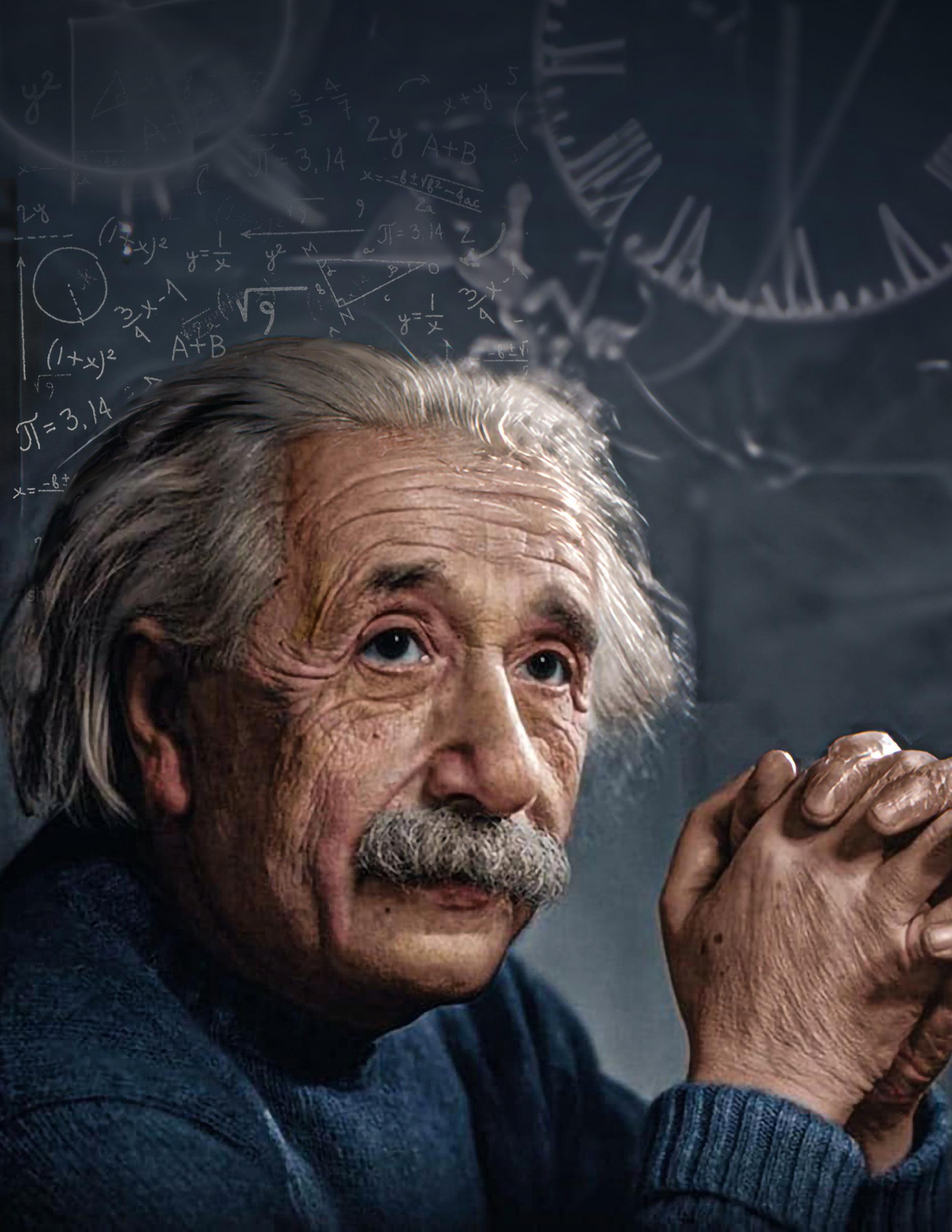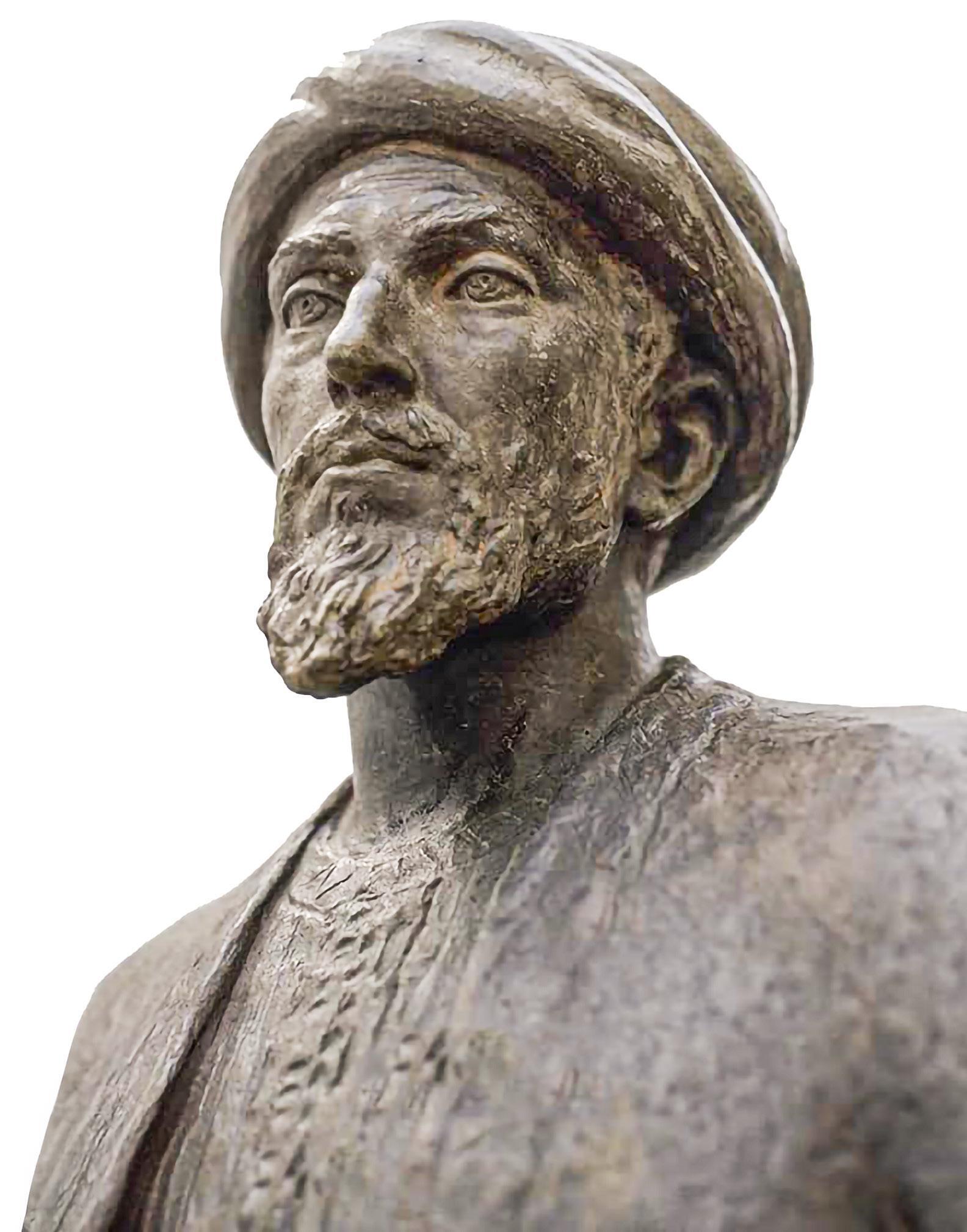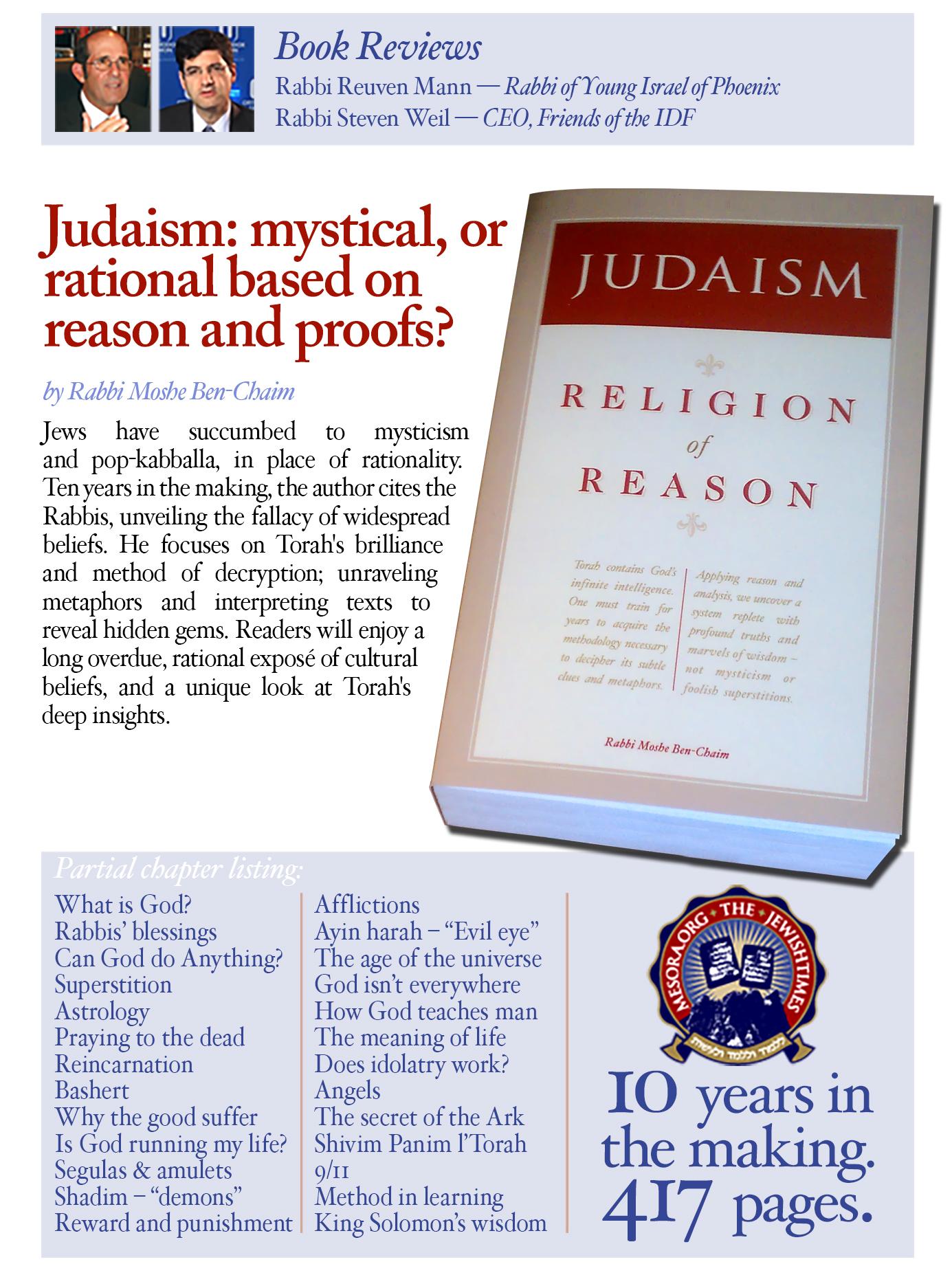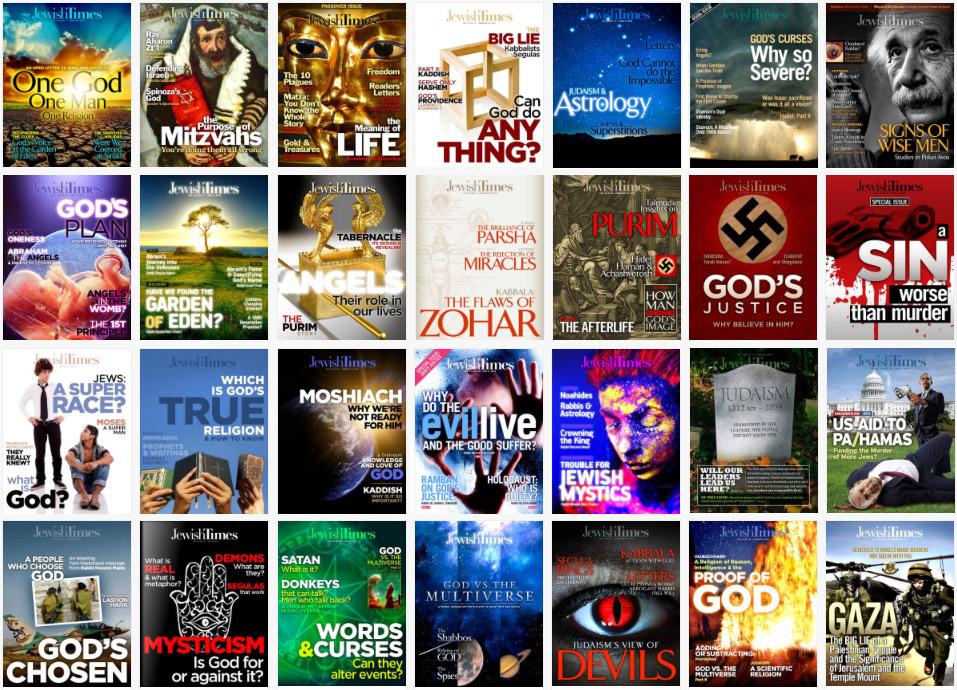
Justice & Righteousness Reward & Punishment
Whom Does God Favor? Is Lying Always Evil?
Torah: A Shield from Evil Men






Justice & Righteousness Reward & Punishment
Whom Does God Favor? Is Lying Always Evil?
Torah: A Shield from Evil Men





Just click any icon in







THE JOURNAL ON TORAH THOUGHT
| Please send letters and questions to: Comment@Mesora.org |
RABBI MOSHE BEN-CHAIM
Many new essential topics are discussed
RABBI MOSHE BEN-CHAIM
The parsha prohibits mystical, vain pursuits to learn the future. How is this pursuit abhorrent?
RABBI MOSHE BEN-CHAIM
King Solomon’s lessons on gaining knowledge of God
RABBI REUVEN MANN
The separation between good intent and objective truth
RABBI REUVEN MANN
This Torah fundamental is analyzed

Insecurity drives mystical belief in these 4 errors: 1) The future exists now 2) It can be discovered 3) One must prepare for the future 4) The future is determined and fixed Full essay on page 6
RABBI MOSHE BEN-CHAIM
When wisdom will enter your mind and knowledge will delight you. Torah will protect you and discernment will guard you. It will save you from the way of evil men, from men who speak duplicity. Who leave the proper paths to follow the ways of darkness. Who rejoice in doing evil and exult in the duplicity of evil men. Men whose paths are crooked and who are devious in their course. (Proverbs 2:10-15)
How does Torah shield us? Torah is God’s absolute knowledge. It covers the gamut reality, specifically here referring to human existence. From psychology to philosophy, morality, justice, our personality and activities, Torah teaches what is true and good, and their opposites.
It will save you from the way of evil men, from men who speak duplicity.
First King Solomon says Torah saves us from evil men, those who talk deceitfully. How does Torah accomplish this?
Primarily, Torah teaches in general not to seek security in any man. We require this lesson, as from youth we are cultivated to become dependent, viewing parents and adults as authorities. That very concept of an authority remains with most people throughout their lives, seeking peer approval as the most dominant expression of this need. So people follow others, join groups and make close friends despite their immorality. Their crippled need for approval overrides all else. But a Torah student studies Torah’s psychological lesson of not following others, such as the Masis and the Meidiach (those who convince others to serve idolatry). We are not to follow people, or fallacy. We follow truth, because God designed the world to operate according to truth, and to cause conflict when we oppose truth. The Spies too sought to gain a following. This need to gain friends and followers is the expression of insecurity in one’s own views. The Torah student has strong integrity, he realizes God as the only authority and does not need others to agree with him. He follows his mind. The knowledge of what is real and true, and what is false, empowers the Torah student with independence, with a fear of God, not people. When hearing duplicity from evil men, the Torah student’s mind is trained to detect and reject contradictions, indicating the evil person is confused and offers no principles that follow reality, and must cause harm. The Torah student rejects what is not true. His emotions follow suit, and he does not allow his social needs to overcome his mind, so he rejects duplicity. He sacrifices friendships as he is most attached to truth.
“Who
Knowing Torah’s proper morality, the Torah student identifies others who reject morality to walk in darkness, unguided in any morality. Torah morality is derived not only from God’s laws, but also through the upright lives of Torah personalities. Rabbi Israel Chait explained that although other philosophies may share proper morality, what they lack are “case studies” as Torah depicts. Learning of such models of good and evil behavior in action, we gain a more concrete picture of morality and evil, which is far more effective than other philosophies offering merely
abstract principles. We can also use identification with those models—a good emotion to engage—to follow the models of Abraham, Sarah and all other perfected individuals.
“Who
When a Torah student sees others rejoicing and exulting, he questions their motivation, as rejoicing and exulting are passionate expressions, which typically have their source in emotional roots, not in the mind. So the student of Torah is suspicious of such people. He soon uncovers their instinctual drives as suspected and he rejects their call for friendship. In general, intense emotions indicate instability and instinctually-driven personalities. Such individual are not good alliances on the path toward greater Torah adherence.
“Men whose paths are crooked and who are devious in their course”
Crookedness is quite an accurate depiction of evil men, for they have no focus or path. They live erratically, bouncing from one emotion to another, “The wicked are turbulent as the sea” (Isaiah 57:20). While the proper individual is called “straight; yashar” as Torah directs him on a clear path toward clear goals, so he does not waver. His goals are clearly in focus. He travels directly straight towards them. As Torah presents clear definitions of all good ways, the Torah student immediately recognizes who veers from God, be it in behavior, truth or morality. He is aware of his own personality and tendencies, and constantly reflects on his ways to better align himself towards God. Here, King Solomon identifies the social human need and teaches that Torah does not allow a Torah student to succumb to social needs that conflict with Torah. ■
God said, “Distance yourself from falsehoods” (Exod. 23:7). However, Talmud (Baba Metzia 23b) allows one to alter his words in 3 cases:
Rav Yehuda says that Shmuel says, “One may say he is not learned in an area, he may avoid discussing of sexuality, and he may degrade a certain host.”
He is allowed to alter the truth in learning to be humble, in sexuality to be modest, and regarding hosts to protect them from guests consuming all their food. But how is this permitted in light of God’s command not to lie?
As Howard Salamon shared with me, Rabbi Israel Chait cited other cases too where lying occurred. Aaron lied to disputing people to foster peace between them. Jacob lied to Isaac to obtain the blessings he rightfully purchased, and God lied to Abraham so he would not feel bad that his wife viewed him as old.
The principle is that truth must be upheld. But what shall one do when 2 truths oppose each other? For example, Abraham lied that Sarah was his sister so foreign peoples would not kill him to take his “wife.” Abraham opted for the greater good, that he would live, and continue teaching monotheism. Although clearly lying about Sarah being his wife, the good in this case is not to technically speak truth. The good of his life outweighed the inconsequential truth that she was his wife.
In the Talmudic portion above, humility about one's learning targets one's better relationship with God, as one must be humble, which was the great trait of Moses. Humility of God must precede Torah knowledge. Modesty about sexuality also targets being in the right emotional distance from the lusts. And protecting someone by saying their food is bad preserves their resources.
In any case where a technical truth will cause greater evil, one should alter his words and opt to secure the greater truth. So God’s words remain intact: “Distance yourself from falsehoods” refers to protecting the greater good. One may lie in a smaller matter when it protects a greater truth. ■
Not only the tribe of Levi, but any one of the inhabitants of the world whose spirit generously motivates him and he understands with his wisdom to separate himself and stand before God to serve Him and minister to Him and to know God, walking justly as God made him, removing from his neck the yoke of the many calculations which people seek, he is sanctified as holy of holies. God will be His portion and heritage forever and He will provide what is
sufficient for him in this world like He provides for the priests and the Levites. And thus David declared [Psalms 16:5], "God is the lot of my portion; You are my cup, You support my lot." (Maimonides; Laws of Shmitta and the Jubilee 13:13)
Let’s understand this level of human perfection and all that contributes to earning God’s providence.
“One whose spirit generously motivates him and he understands with his wisdom”
This refers to the personality that can sacrifice the security of the typical working life of. A generous spirit and knowledge are internal factors; walking upright is his external interactions with people (Rashi, Get. 12:28). Thus, he is perfected internally and externally. His value of God’s wisdom does not permit him to remove himself from Torah study and Torah education. His level is one of totally immersion in God's wisdom, so detaching from all else is essential. Such detachment is also essential as God's wisdom’s depth and breadth cannot be perceived by one who is only partially involved. To “
”To stand before God and minister to Him”
This means one is not standing before anything else. This precisely was the lifestyle of the tribe of the Levites who were not engaged in inheritance of land, war spoils or the work of their own hands as the previous law states. They were fully dedicated to Torah study and educating the nation. This personality sacrifices the security that all others seek, as his true value is wisdom, not transient unnecessary materialism. This personality has the conviction that God is the true source of his security, like King David said. He is able to place his trust in God and relinquish self trust and not worry about his income.
“He walks upright as God created him, removing from his neck the yoke of the many calculations which people seek”
This refers to Adam before the sin (Koheles 7:29) where he breaks off his neck the yoke of calculations, avoiding the preoccupation with the physical. Targum explained that after Adam’s sin cost him his immortality, he preoccupied himself with the physical as a
means to attach to his earthly stay; attachment to physicality is the denial of mortality. But the perfected personality Maimonides discusses disengages from pursuing wealth and physical security beyond his basic needs. That is the meaning of being upright.
“He is sanctified as holy of holies”
He has attained the height of human perfection, as his mind sees reality clearly, and his emotions follow suit. He acts in accordance with his knowledge and can abandon work efforts to a high degree, with the security that…
“God will be His portion and heritage forever and He will provide what is sufficient for him in this world like He provides for the priests and the Levites. And thus David declared [Psalms 16:5], "God is the lot of my portion; You are my cup, You support my lot.”
As God wishes this perfection for man, God takes care of this person’s needs to enable his life continued in dedicated to wisdom, as opposed to unnecessary physical possessions and pleasures. This personality does not want or need more than his basic needs, they are distractions. So in truth, God supplies this person with literally all his needs. ■
Proverbs 2:7-9
2:7—God stores away salvation for upright people, He is a shield for those who walk upright.
2:8—He guards the paths of justice, and the path of his pious ones He watches. 2:9—Then you will understand righteousness and justice and what is upright, all good paths.
2:9 commences with “then,” thereby teaching that it is only once a person learns God's providence from the 2 previous verses, that only then one “understands righteousness and justice.” Upright and pious people earn
God’s providence, “He is a shield for those who walk upright.” But he must be one who “walks” perfectly…referring to a “continuous” lifestyle, not just one act of righteousness. “Walking” is continuous. Thus, those who walk upright earn His providence. Now, only after this providence does King Solomon say, “Then one will understand righteousness, justice and what is upright.”
We must ask: In what manner does understanding justice require the prerequisite knowledge of God's providence? We also wonder what is meant by “paths” of justice and “paths” of the pious ones.
Providence shields a righteous person from anything negative. A shield is needed, for the righteous path is not synonymous with material success. Many times, operating justly forfeits the pious person success. The world functions mathematically: the more you work, the greater is your success. And the more you deceive, swindle and rob, the greater is your wealth. So naturally-accumulated wealth is the result of operating purely materialistically, and has nothing to do with honesty and integrity. One who is righteous veers away from chasing unjust gain and therefore needs God's providence to compensate for his forfeitures. He is also at the mercy of crooked men. Take a just man and a swindler: left to natural law, the swindler will accumulate much more wealth, as we see in the case of Jacob and Lavan. Had God not stepped in and provided providence for Jacob, all of Lavan’s deceit would have left Jacob penniless (Gen. 31). God extends His providence to pious people.
What is the meaning of a “path” of righteousness? This refers to a system external to oneself, external to one's personal motives. A righteous person gauges all his actions to comply with God's justice, righteousness and charity. God’s Torah system dictates all his actions. Therefore God favors and protects one who abandons his drive for cheating others, in favor of following God and His will. Verse 2:9 indicates that one only understands God's righteousness and justice after God protects man. This indicates that inherent in understanding justice and righteousness, one must understand God’s system of Reward and Punishment. Thats’ why verse 9 follows verses 7 and 8. The former refer to God’s Reward and Punishment, and verse 9 refers to man’s new understandings. Accurate knowledge of righteousness and justice demands knowing God's system of Reward and Punishment, His providence. This system teaches who is good and who is evil. Once man understands God’s definitions of good and evil, then he can
perform justice and righteousness. But an atheist or an idolater cannot perform true justice or righteousness.
Talmud Avoda Zara 2b states that “God released the nations from their 7 Noahide commands.” This means that as the gentiles were no longer aware of God's commands, all of their morality was of no value as they were not “following God,” but their personal motives. It was “as if” God released their obligation as they did not recognize Him, so their morality was not a “subjugation” to God’s will, but to societal convenience. This is the same idea as Proverbs 2:9, meaning that God endorsing the proper righteousness and justice by assisting the pious, is vital, as this teaches true morality, Reward and Punishment. And without knowledge of, and compliance to God’s will, one cannot perform true righteousness or justice, as he acts based on emotions alone. Meaning, until one copies the unselfish righteousness and justice portrayed by God, he must be acting based on his own selfishness. Thus, copying God's righteousness and justice is the only way to perform righteousness and justice, as the rabbis teach “Ma hu af attah; Just as God acts, you shall act” (Tal. Shabbos 133b). Otherwise one is simply acting from his own emotions which is not how God acts. True righteousness and justice is to address the objective need (God’s perspective), not to satisfy one’s feelings (man’s perspective). You're actually catering to the emotions of others—not your own—when you act properly. True righteousness and justice requires knowledge of how God interacts with a man. For without understanding God’s system of Reward and Punishment, one cannot know what is good or evil. All morality requires God's definitions; it requires knowledge of Reward and Punishment. Therefore, Proverbs 2:9 saying “then” you will understand righteousness and justice, can only come subsequent to one's knowledge of rReward and Punishment, which defines what is good evil. ■


Wyou, you shall not learn to imitate the abhorrent practices of those nations. Let no one be found among you who consigns a son or daughter to the fire, or who is an augur, a soothsayer, a diviner, a sorcerer, one who casts spells, or one who consults ghosts or familiar spirits, or one who inquires of the dead. For anyone who does such things is abhorrent to God, and it is because of these abhorrent things that your God is dispossessing them before you. You must be wholehearted with your God. Those nations that you are about to dispossess do indeed resort to soothsayers and augurs; to you, however, your God has not assigned the like.” (Deut. 18:9-14)
Rashi comments on 8:13:
Walk before him whole-heartedly, put your hope in Him and do not attempt to investigate the future, but whatever comes upon you, accept it whole-heartedly. And then thou shalt be with Him and become His portion (Sifrei Devarim 173:3).
Rashi says “do not attempt to investigate the future.” What is so abhorrent about doing so?
To “investigate the future” reveals the following 4 crucial fallacies about such a person’s thinking and beliefs:
1) The future exists now, 2) it can be discovered, and more importantly, 3) the future is that, for which to make preparations. Why prepare? Because one also believes
4) the future is determined and fixed, and it could be bad, or something disliked.
These 4 elements underlie the belief that the future is a reality now. Assuming one can learn the future means one believes there now exists a destined series of events. This opposes God, as one feels the future is fixed: it is unrelated to man's sinning and repenting, where according to God, reward and punishment continually adjusts man’s fate. Therefore one who seeks forecasts believes the future is fixed, thereby denying God’s system of reward and punishment. That's why it is abhorrent.
Rashi says more: “Whatever comes upon you, accept it whole-heartedly.”
This means one must not reject or fear how reality unfolds each day. Rather, accept how God designed the world. Of course, plan properly naturally to secure safety and all your needs, and trust in God’s help. But do not feel dissatisfaction at God’s design of the world’s operation.
Rashi adds: “And then thou shalt be with Him and become His portion.”
Living properly, intelligently, following Torah, one must be confident that our good God knows what He is doing, and it is for man’s benefit. “Becoming God’s portion” means we will deserve a good fate; He will apportion to us a lot befitting our deeds. Maimonides’ words are fitting at this point:
There is a difference between God's rule, providence, and intention in reference to all natural forces, and our rule, providence, and intention in reference to things which are the objects of our rule, providence, and intention. This lesson is the principal object of the whole Book of Job; it lays down this principle of faith, and recommends us to derive a proof from nature, that we should not fall into the error of imagining His knowledge to be similar to ours, or His intention, providence, and rule similar to ours. When we know this we shall find everything that may befall us easy to bear; mishap will create no doubts in our hearts concerning God, whether He knows our affairs or not, whether He provides for us or abandons us. On the contrary, our fate will increase our love of God; as is said in the end of this prophecy, “Therefore I abhor myself and repent concerning the dust and ashes" (xlii. 6), and as our Sages say, “The pious do everything out of love, and rejoice in their own afflictions" (Tal. Shabbos 88b).
(Guide, book II, chap. xxiii) ■

Is Judaism mystical, or is it rational, based on reason and proofs?




Moses asked God to teach him His honor, meaning Moses wished to know God’s distinct nature. But God replied, “Man cannot know Me while alive” (Exod. 33:20).
Although we cannot know God’s essence, we can learn God’s will. King Solomon taught us how to gain knowledge of God’s will.
As our prophets’ messages are from God, we must expect great wisdom and dismiss anything less as our misunderstanding. Each of Proverb’s verses has 2 messages, both revealing brilliant gems. So don’t be satisfied with explaining only half the verse.
King Solomon opens chapter 2 of Proverbs as follows:
My son, if you accept my words and store my commands. If you incline your ear to wisdom and turn your heart to understanding. If you would call to understanding and give your voice discernment. If you seek it like silver and search for it like buried treasures. Then you will understand the fear of God and the knowledge of God you will find. For God grants wisdom, from His lips emanate knowledge and understanding. (Proverbs 2:1-6)
Let’s decipher each verse one by one…


All books depict history, facts, theories, fiction or poetry. No book is coded with hidden messages beyond the words or patterns revealing marvels. But the Bible (Torah) was written by God, and is “coded.” The order of verses, use of certain phrases, apparent contradictions and other Biblical patterns are pur poseful clues to God’s wisdom.
This book unveils those patterns and shares the hidden messages.



My son, if you accept my words and store my commands
What is the difference between words and commands? Words refer to advice, but not necessarily demanding action. That is what “command” means: a required performance. Why is performance required in addition to hearing and agreeing with King Solomon's advice? It is only when one truly values something, when he is convinced of its truth, that he acts out that conviction. A person can praise the merits of charity, but if he never gives charity, this reflects his lack of conviction in its value. And this is what King Solomon desires for others: to attain perfection which demands the application of truths and ideals in action. What is the additional lesson that one must “store” those commands? This refers to a continual lifestyle, as opposed to a one-time action. A person can listen to King Solomon and he can also follow his command, but do it just once. But without a lifetime commitment to those commands, again this reflects a lack of conviction. When one truly sees a truth, his conviction now changes his path in life so he repeats the value for the rest of his days. He stores up that truth with him.
“Inclining” towards one activity over another displays a “preferred” interest. The depth, brilliance and multitude of ideas encapsulated in a single Torah verse or thought demand undivided attention to unravel it, and to precisely define it. If one’s inclination is divided among varied interests, the full energy and focus demanded to uncover God’s wisdom is not available, and so, one will forfeit what he potentially would have discovered: “Not all who increase in business become wise” (Avos 2:5). Next, one must “turn his heart to understanding,” because the newly discovered wisdom is only the tip of the iceberg. God’s wisdom is not simple, or only surface deep. God actually formulated His wisdom (Rishonim) in a manner accessible to man and angels. And this formulation is that one idea leads to further ideas. At the base of a mountain, one sees only the top of that mountain.
As he climbs and arrives at the top, from there he can see other mountain tops, unseen before. So too, one first learns the concept of kindness. His first notion is to be good to all people all the time. But then he must learn what “goodness” is…it’s not always generosity. At times, goodness means depriving another, if that forces his growth of independence. But prior to teaching forced independence, one must previously know what generosity is, in order to apply or withhold generosity to help others become independent. As a general rule, one must first learn a main concept before applying it to individual cases. Wisdom has many layers. New ideas are enlightening and naturally pleasurable. Additionally, the expansion of wisdom from one new idea which leads to others is part of the appeal of wisdom. Man experiences pleasure when expending all his energies in thought, which is fully satisfying. In other areas like physical desires, one can expend limited energy until he is either frustrated or in pain, like overeating. But such frustration does not exist in thought which allows continued engagement in wisdom, providing great satisfaction. Frustrated release of energy does not exist in thought, making it free of frustration and pleasurable.
But one must be proactive in his studies. Passivity will not yield great discoveries, as King Solomon said, “The learning that I studied with anger is what stood with me” (Koheles 2:9). Learning requires anger, meaning great intensity. We are referring to God's wisdom which is deep, subtle and extensive, and is only found when the mind is keen and perseveres. Therefore, one must be proactive and not merely responsive. Gaining wisdom demands one initiates the search which sets the mind in a totally different framework than merely responding to questions that cross his path. The active mind is functioning in a completely different manner than the passive mind, which is not in the “exploring” mode. The proactive mind awakens those tools of thought such as comparison, equality, differentiating, induction and deduc-
tion…all necessary for weighing one idea against the other and discerning. But calling or searching out wisdom is insufficient, one must also “give his voice to discernment,” referring to articulating one’s thoughts. If one cannot articulate a thought, it means the idea is not clear to him. Man thinks in language, and as a specific idea is perceived, it has a precise formulation unique from any other idea. To know that idea clearly means man must be able describe it precisely. That is “giving voice” to wisdom.
God’s wisdom is brilliant, it’s responsible for the universe and all its myriads of intricate systems, from the cosmos to human life and the design of the soul. Torah is no different. One must dismiss mediocrity and seek out answers to questions that are as precious as silver. When one successfully discovers a true new principle, the principle’s novelty and uniqueness astounds man. If the idea isn’t beautiful to the mind, its truth is questionable. When Rabbi Israel Chait would give a lecture (shiur), and then uncover a new concept, and his students would then start asking him side questions, Rabbi Chait would then say, “Let’s first take a moment to enjoy this idea.” Rabbi Chait expressed that state of enjoying the novelty of a newly discovered concept that was refreshing and unique. It was deeply enjoyable. Rabbi Chait once said,
There is an argument among the scientists: “How should knowledge of man proceed: Should we follow the beauty of arguments? Or should we concentrate more on practical experiments and forget about the appreciation of ideas, [for] is that really part of the mind?”
The greatest scientists in the world debate this. Judaism casts its vote for the appreciation of ideas. If there is no beauty to an idea, you might as well abandon it; it’s worthless. (“Pirkei Avos 5” pg. 455).
The reason King Solomon cites both silver and buried treasures is because there are two types of searches for
wisdom. In one case, of person can have intuition of where the answer lies, like somebody digging in a silver mine knows he seeks silver. Similarly, a person can be searching for the reason why people who chase money are never satisfied with money. His intuition tells them that the answer lies in human psychology and not in economics, he knows the area of “dissatisfaction” is a psychological phenomenon. But sometimes a person has a question and does not have a direction. This is similar to a person who knows there's something valuable in the sunken ship, but the treasure has no identity yet. King Solomon says in both cases one must have the expectation of greatness when he's looking for God's wisdom. Be it silver or buried treasure, what he is expecting is something abundantly valuable. Expecting greatness as one should expect in Torah, he will dismiss mediocre answers.
One's search for wisdom must ultimately end in an appreciation of God, in grasping the purpose for the newly discovered reality. For without knowing the purpose of existence in any given subject, one fails to truly understand it. Rabbi Chait once compared the knowledge of the human cell known by both a scientist and by Moses. He asked who has the greater knowledge of the cell. One might think it is the scientist who spends decades studying the human body with various
instruments, whereas Moses could not have had such knowledge. But the scientist did not understand the “purpose” of human life in order to actually know the ultimate purpose of the human cell; he only knew the “function” of the cell. Therefore Moses had the greater knowledge because although he had less scientific knowledge of the cell, he understood its purpose: that every part of the human body has an ultimate purpose of contributing to man’s one goal of gaining knowledge of God. This means that truly understanding something means you understand its purpose, not simply how it functions like a scientist might know.
King Solomon now explains why such great effort is required to understand wisdom. It's because all wisdom is God's creation—“it is God who grants wisdom”—and with such brilliance behind such wisdom, it is no easy matter to know anything at all. He further ads that it is “God’s lips” from where knowledge emanates. This is a metaphor referring to Torah which are God’s precisely and perfectly articulated words. King Solomon points to another important concept here. When man studies nature, it is human language that forms the deductions and laws he discovers. However, Torah is a level far above human formulation of nature because it is God's language, not man’s. So we are closer to reality when we study God’s
articulated words which are perfect. In contrast, human discoveries are imperfect formulations. This concept is repeated in Psalm 19 were King David compares the natural world to the Torah and he says “God’s Torah is perfect.” He does not mean the natural world is flawed, since it is God's creation. But King David refers to the same concept that his son King Solomon enunciates: Torah contains the perfection of embodying God’s articulations, while human-formulated natural law lack that perfection.
King Solomon teaches that wisdom must be lived out through consistent action, not merely admired in theory, since conviction is proven by deeds. True pursuit of wisdom requires full focus, progression from basic to deeper concepts, and appreciation of its layered nature. Study must be proactive, intense, and articulated clearly, as unclear speech reflects unclear thought. One must value wisdom as precious treasure, approaching it with high expectations and delight in its beauty rather than settling for mediocrity. All wisdom must lead to understanding God’s purpose of existence. Torah offers a perfect approach as God’s perfect articulation surpasses human discovery in clarity and truth.
King Solomon teaches that true wisdom—pursued with focus, action, clarity, and delight—ultimately reveals God’s purpose and knowledge, surpassing all human understanding. ■

Rabbi Reuven Mann

his week’s Parsha, Shoftim, describes the various institutions by which the Jewish People are to be governed when they establish a society in the Land of Israel. First and foremost is the judicial system whose purpose is to judge the people “at all times”. What makes the Torah’s legal mechanism unique is its absolute insistence on Tzedek (righteousness).

To achieve this, special judges of a very refined character must be chosen. The true Dayan (judge) must be on a very high level of Torah scholarship. He has to have a broad knowledge and deep understanding of both the Written and Oral Laws. His primary task is to apply the abstract Halacha (Jewish law) to the issue before him. He therefore in addition to all the wisdom he has acquired must be able to analyze complicated matters from various angles and to understand sophisticated logical concepts. He must also be able to discern how these principles are manifest in contemporary
For example, electric appliances did not exist in the time period of the Revelation, nor for many subsequent years during which the laws pertaining to Shabbat were elucidated and recorded in the Talmud and the various Codes. Yet, this is a very serious topic pertaining to the laws of Shabbat and Yamim Tovim (Holidays) in our time. Are we permitted to turn on electric lights and use our appliances on Shabbat? The great scholars who have mastered the fundamental principles of Melachot Shabbat (Sabbath Labor) have the daunting task of applying these principles to the current technological realities. Not only must they have expert understanding of the Talmudic principles, but they must also have an understanding of modern technology
and the ability to creatively apply abstract concepts to the newfound situation. Therefore, first and foremost, true justice demands appointing judges of the highest intellectual caliber. But even the wisest and most knowledgeable individual can have his judgment impaired. This can happen when the mind is not free because certain emotions which distort reason have entered the picture. Even sagacious judges have prejudices or have become subject to bribery by those who offer great rewards for a specific judicial outcome.
[Note: The great Rabbis were meticulous in avoiding even the slightest Shochad (bribery). For example, in Ketubot 105b, Ameimar, while judging a case, had a feather land on his head. A man removed it, and when Ameimar learned he was a litigant, he said, “I am disqualified from your case due to the favor you performed for me.”]
Bribery can take many forms. It’s not always a matter of an interested party with lots of money. The distorting factor can stem from within the judge’s own soul. For example, there can be a monetary dispute between a very poor person and an extremely wealthy one, who will not even notice the loss of money he would sustain if he lost the case.
The judge in the case may be a very righteous and caring individual who is greatly pained by the sorry circumstances of the poor disputant. He wants to help him and can’t imagine why the rich guy can’t just let him have the money of which he himself has absolutely no need. He can actually feel the anger welling inside himself.
However, when he considers the issues of the case he sees they are not cut and dry, but contain significant complexity. At a certain point it may become clear to him that if he so desires he can “find” for the poor fellow and easily justify his decision. No one will criticize his conclusion and a great deed of charity will have been done.
But there is a nagging problem. He has intensely studied the matters involved in the case and while they are difficult, his own purely legal judgment favors the side of the rich plaintiff. While it is a close call he personally is convinced of the rich man’s case. If all things were equal, he would rule for the wealthy plaintiff, but he is overcome by his pity for the impoverished party and decides to do the compassionate thing and award the victory to
him. What does the Torah have to say about this?
This matter is addressed by Rashi in two places. The verse in Deuteronomy implores us, “You shall not show favoritism in judgment, small and great alike shall you hear…” (Devarim 1:17). Rashi there explains the context as a case where a poor man is pitted against a rich one and the judge is being warned not to say, ‘This one is poor, and his fellow litigant is rich, and he is commanded to support his poor fellow. I will rule in favor of the poor one, and thus it will happen that he will get his livelihood in a dignified manner.’ (Rashi Devarim 1:17). This point is reiterated in VaYikra 19:15, which states:
“You shall not commit a perversion of justice, you shall not favor the destitute man, and you shall not honor the great man; with righteousness shall you judge your fellow”.
On the words, “You shall not favor a destitute man”, Rashi again explains that you may not distort the judgment of a case in favor of the poor man so that he may be financially sustained in a dignified manner. According to the Torah, this judge, in the course of trying to do a righteous deed, has, in fact, committed a serious Aveira (transgression), that of corrupting justice. But we must ask why the Torah speaks so harshly against a judge who has a good heart and wants to adjudicate the case in the most beneficial and compassionate manner.
The answer is that it is definitely true that compassion is one of the greatest human virtues, and in fact, makes up one of the three defining characteristics of the Jewish people who are depicted as: Rachmanim (merciful), Baishanim (modest) and Gomlei Chasadim (practitioners of loving-kindness). (Yevamot 79a) Therefore, the fact that the judge wants to be merciful to the impoverished litigant is a good thing, so long as he prevents that impulse from distorting true Mishpat (justice). Yet, if he should abandon his legal understanding in favor of his merciful heart, he is manifesting false compassion and introduces corruption to the judicial system. His following of his merciful heart constitutes a flagrant violation of the ideal of Tzedek. The laws we are to live and govern society by are righteous ordinances from Hashem, and they may not be
tampered with, but must be executed as faithfully as possible.
The Torah is structured with the two distinct values of justice and compassion. Sometimes they need to be kept separate from each other. A doctor may be motivated by his compassion to dedicate himself to the healing of a patient with a very complicated condition. But in carrying out that goal he must put his emotions aside and search with his mind for the most logically compelling treatments. If he succeeds, it will be as a result of a combination of heart and mind working together in which each operates in its own unique area of effectiveness.
Similarly, the institution of justice must be pure and can’t be tainted by the imposition of emotional determinations in the place of accurate Halachik (Jewish legal) conclusions. The judge must rule according to his wisdom and in this case award the judgment to the wealthy person in spite of the fact that he has no need of the money. In a way, we can say that it is Hashem’s Will that the rich person should have that money; not necessarily in the direct sense, but indirectly, by having established the judicial system in this manner.
It is not Hashem’s Will that the poor person should win the case, but that it should be determined exclusively by the natural unfolding of the Halachik process. If that causes the rich man to prevail then that is what we must regard as the Will of Hashem. The judge must first and foremost be true to the Will of Hashem and decide all cases wherever the Halacha leads him without any deviation even for the sake of lofty social ideals. The practical consequences of his decision cannot be a factor in determining the outcome. In that sense he must “check his compassion at the door” before he begins the trial.
The truly perfected judge is the one who adheres to the laws of Hashem even when the outcome may go contrary to certain of his moral values. Thus, if there is a case in which a poor person loses to a significantly wealthy one, the true verdict must be delivered.
However, the matter should not end there. At this point the virtue of compassion should enter the scene. We should all be cognizant of the plight of the Ani (poor
person) and seek to help him according to the principles of Tzedaka (Charity) and Chesed (Kindness) and be especially careful to do so in a manner which does not violate his honor.
The message of our Parsha is of great relevance to every one of us, including those who are not judges. We, too, must act according to the principle of justice in all our many varied relationships. This requires an ability to be competently analytical and thoroughly objective in matters in which we are personally involved.
Many people are very shrewd in detecting the flaws of others, even very subtle ones; but are thoroughly blind when these shortcomings are present in their very own behavior. Thus, when it comes to judging other persons we can be very demanding and are often unwilling to judge them more charitably and strive to look at what they did in a lighter, more easygoing, and forgiving manner.
And if we are to be judges of others, we must have the capacity to judge ourselves. We must be able to put aside our natural feelings that we are good people, and are therefore correct in most of our social interactions. We must be able to look at actions we have taken with the same uncompromising objectivity that we apply to others. Likewise, we must certainly not behave like those who condemn certain things in others but justify them in themselves.
Perhaps an additional interpretation of “Justice, justice shalt thou pursue” (Devarim: 16:20) is that we must seek to implement justice with regard to others, where it is easier to be penetrating and objective, and also with ourselves, where there is a natural tendency to soft-pedal blatant wrongdoings and rationalize away unworthy behaviors.
The person who loves truth and Tzedek reaches the point where he is very open to admitting his mistakes, and might even develop an appreciation for concerned people who offer intelligent and sound criticism with the best of intentions. The true servant of Hashem is always striving to become a better, more just, truthful and (appropriately) compassionate individual. May Hashem assist us in this matter. Shabbat Shalom. ■
Rabbi Reuven Mann PARSHA
Last week’s Parsha, Re’eh, takes up the doctrine of Reward and Punishment, which is central not only to Judaism but to virtually all religions. The Torah emphasizes in many places that while one’s lot in life, including material situation, health, and longevity, is significantly affected by how one lives, there is also a deeper metaphysical dimension to consider.
According to our Parsha, one’s religious behavior also plays a role in determining their Matzav (practical situation). This is made clear in the opening verses of our Sedra (Torah portion) in which Moshe states:
“See, I present before you today; a blessing and a curse. The blessing; that you hearken to the commandments of Hashem, your G-d, that I command you today. And the curse, if you do not hearken to the commandments of Hashem, your G-d, and you stray from the path that I command you today; to follow gods of others, that you did not know.” (Devarim 11:26-28)
Thus, it is very clear that there are material consequences that ensue from one’s embrace or rejection of Torah. This message, however, requires elucidation. We must ask, why is Moshe making this type of appeal to Bnei Yisrael (the Children of Israel)?
It is interesting to note that the contemporary Kiruv (Jewish outreach) movement’s methods seem to avoid this type of appeal. Instead, they stress all the positive emotional and spiritual benefits that are associated with the Torah lifestyle. Their pitch is that one should carefully consider one’s current way of living and recognize the many ways it can be improved by observing the commandments and being part of a vibrant Jewish community.

Nevertheless, in its plainest form, the notion of practical enticements and scary threats seems out of touch with the basic character of the Torah which is depicted as “More desirable than gold, and much fine gold; sweeter than honey and the drippings of the honeycombs” (Tehilim 19:11). This means that if people truly recognized the beauty and wisdom in the Mitzvot, they would naturally be drawn to them without the need for fear-based incentives. What then is the role and religious function of the “Blessings and Curses”?
In all other religions, the promise of rewards and the threat of punishments are absolutely essential to their survival, since the religion could not function without them. Why would a person surrender many of this world’s pleasures to conform with the requirements of the various religions?
In my opinion, if the non-Jewish religions would declare that there were no supernatural consequences for either obedience or rebellion, they would instantly lose an overwhelming number of their adherents. After all is said and done, most religious people make sacrifices
because they fear death and seek the ‘eternal life’ their religion promises. Judaism is completely different in this respect. It never speaks about “Paradise” and only indirectly alludes to eternal life by saying “You shall surely send away the mother and take the young for yourself; so that it will be good for you, and you will prolong your days” (Devarim 22:7) which the Rabbis take to be a reference to “a world that is completely prolonged” i.e., eternal.
The Torah is not asking anyone to give up the pleasures of this world. To the contrary, the Rambam refers to people who practice asceticism and deny themselves all the enjoyments of this world, in the belief that inflicting pain on themselves is somehow a service of Hashem, as fools akin to idolaters.
In fact, says the Rambam, one should pursue the path of moderation, which means one should avoid the extremes of both denial and indulgence and satisfy one’s physical needs in order to be in the best possible condition to serve Hashem. The wisdom of the Torah and the discipline of the Mitzvot transform the person into a highly intelligent, just, and compassionate individual who lives a very meaningful and gratifying life. In fact, the Torah life is the most sensible and attractive one to live, and does not need to point to external incentives to make it the correct religious choice. A wise person would embrace the Torah way of life for its own intrinsic value, even if there were no other blandishments. Therefore, we must understand the role of the “blessings and curses” in the framework of Torah Judaism.
The Rambam maintains that while the rewards referred to in the Torah pertain to physical benefits in this world, such as success in one’s endeavors, material goods, peace, and the like; nevertheless they are not the ultimate “prize” one receives for religious obedience. The highest reward is that which a person experiences once the soul is detached from the body in the environment known as Olam HaBah (World to Come). This is what he refers to as “the ‘Good’ which contains no Bad and the ‘length of days’ which are endless” (Hilchot Teshuva 8:1) The type of “joy” which is stored up for the righteous in that future is beyond the capability of anyone, even a prophet, to imagine or describe.
[Note: It should also be mentioned that Judaism maintains the concept
of Chelek (Portion) with regard to Olam HaBah. Not everyone partakes of it to the same degree. Rather, says the Rambam, one’s share in it is in accordance with the level of Torah knowledge and good deeds that he has acquired. Therefore, a wise person is not complacent in these matters and should not be comforted by the general thought that, most probably, they have a good chance of making it to the next world. If, indeed, that is important to them, then they should also strive to obtain the greatest portion of it that they can aspire to. Complacency in the life of righteousness is not Hegyoni (sensible).]
The Rambam asks, if the ultimate reward is that which the Tzadik (righteous one) attains after death, what is the value of all the physical inducements that the Torah holds out before us? He explains that these material goods are not really “rewards”. Rather, when a person seriously engages in the attempt to elevate himself through meaningful Torah study and intense performance of Mitzvot and general good deeds, Hashem helps him to attain all the practical things that he will need to live the life he has chosen. Thus, one who is “searching for Hashem” will have ample freedom to attain higher levels of spiritual development and, consequently, a greater share of Paradise.
It therefore emerges that if one fulfills the Torah lifestyle properly and develops all the virtues that it entails, he will have the best possible life in this world and will inherit the World to Come.

The Rabbis teach, “All of Israel have a share in the World to Come” (Sanhedrin 10:1). This refers to those who believe in the fundamentals of Judaism and do not renounce their identification with Klal Yisrael (Jewish People). That is the starting point. We have the ability to enhance and significantly enlarge the portion of eternity that constitutes our birthright.
May we merit to discover the real value of Torah, and be motivated to study and observe it because of its own intrinsic value and the love of our Creator. Who, in His Divine Kindness, bequeathed it to us, His chosen People.
Shabbat Shalom. ■
Questions? Comments?
Please reach out to Rabbi Mann on WhatsApp at 050-709-2372 or by email at rebmann21@aol.com. Alternatively, contact Mitch Rosner on WhatsApp at 054-426-3419 or by email at mitchrosner@gmail.com.
From the vantage point of space, the atmosphere reveals its artistry with striking clarity. A cold front appears like a deliberate brushstroke across the planet — an almost straight line of dense clouds that marks the clash of two air masses. On one side, warm, lighter air retreats; on the other, cold, heavier air surges forward with power and inevitability.
This boundary is not a quiet one. Cold fronts can span thousands of miles, reshaping the skies and landscapes beneath them. As the colder air advances, it forces warm air upward, where it cools and condenses, creating towering cloud formations. The result can be dramatic: torrential rainfall, sudden and violent thunderstorms, fierce winds, and an abrupt drop in temperature. In the span of a few hours, a region can be transformed from calm and mild to stormy and unsettled.
For meteorologists, cold fronts are more than lines on a weather map — they are living systems that drive much of Earth’s dynamic climate. For those on the ground, they are both a spectacle and a warning: a reminder of nature’s power to shift moods with speed and intensity. ■







